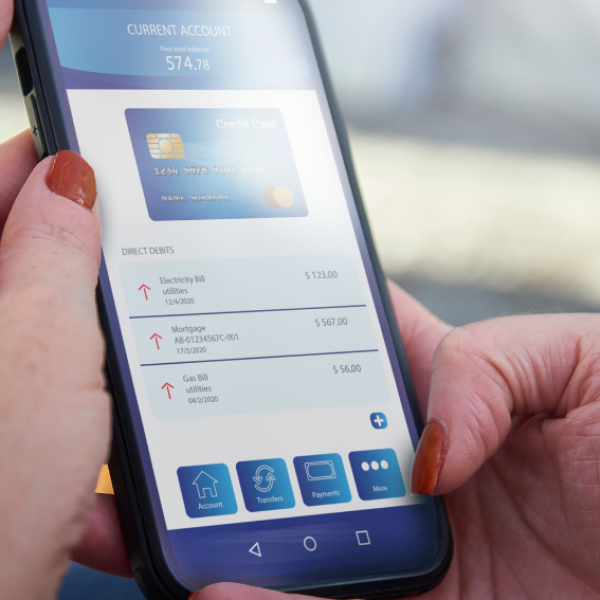Small-scale industries are a vital force, driving innovation, creating jobs, and contributing significantly to GDP growth. However, like all businesses, they face challenges, especially when it comes to efficiently managing financial transactions. This is where merchant services come in, offering a suite of financial solutions tailored to meet the needs of small-scale industries.
Merchant services refer to the tools and processes that allow businesses to accept and manage customer payments. With the increasing demand for digital transactions and the shift toward a cashless economy, merchant services have become crucial for small-scale industries aiming to streamline their operations, improve customer satisfaction, and boost profitability.
In This Article
ToggleWhat Are Merchant Services?
Merchant services are a suite of financial tools and solutions that facilitate electronic payment processing for businesses, enabling them to offer a variety of payment options. These services go beyond traditional cash transactions, allowing businesses to accept credit cards, debit cards, online payments, and mobile payments.
For small-scale industries, adopting merchant services can simplify transactions, improve customer experience, and ultimately increase revenue by appealing to a broader range of payment preferences.
Typically, merchant services include the following components:
- Payment Gateways: These allow businesses to process online payments securely by acting as the intermediary between a website and financial institutions. Payment gateways are essential for e-commerce, as they encrypt sensitive customer information, ensuring secure and seamless transactions.
- Credit Card Processing: This is one of the most common features in merchant services, allowing businesses to accept payments from major credit card providers. Credit card processing services also involve compliance with security standards to protect both the business and customers from fraudulent activity.
- Point-of-Sale (POS) Systems: POS systems are vital for in-person transactions, as they streamline the checkout process. A good POS system can manage inventory, track sales, and provide valuable data analytics in addition to processing payments.
- Mobile Payment Solutions: With mobile payments on the rise, merchant services offer options to accept payments from mobile wallets and apps. This is especially valuable for small businesses that operate on-the-go or in non-traditional settings, such as food trucks, market stalls, or pop-up shops.
- Fraud Protection: Security is a top priority in financial transactions, and merchant services often come with fraud detection tools to safeguard against unauthorized activities. Many providers offer encryption, tokenization, and monitoring for suspicious transactions, protecting both the business and its customers.
By adopting these tools, small-scale industries can offer customers a flexible and secure payment experience. Moreover, having multiple payment options can attract more customers, leading to higher customer satisfaction and retention rates.
Why Small-Scale Industries Need Merchant Services

Small-scale industries operate with limited resources and face unique challenges compared to larger corporations. Implementing merchant services can be a game-changer for these businesses, as it streamlines financial operations and supports sustainable growth.
Here are some of the key reasons why merchant services are essential for small-scale industries:
Accepting Multiple Forms of Payment
In today’s market, customers expect a range of payment options that extend beyond cash. Merchant services enable small businesses to accept payments through credit and debit cards, online payments, and mobile transactions. This versatility appeals to modern consumers, who increasingly rely on digital and contactless payment methods. By offering these options, small-scale industries can serve a wider customer base and potentially increase their sales volume.
For instance, a local bakery that uses a merchant service provider to accept card payments may see an uptick in sales, as customers are more likely to make impulse purchases when they have access to cashless payment options. This flexibility can make a significant difference in driving revenue, especially for small businesses.
Simplifying the Checkout Process
The checkout experience is a critical component of customer satisfaction. A complicated or lengthy payment process can frustrate customers and may even lead to abandoned purchases. Merchant services provide tools such as POS systems and payment gateways that speed up the checkout process, making it more efficient and convenient for customers.
An efficient checkout system not only enhances the customer experience but also improves operational efficiency. For instance, a POS system in a small clothing boutique can streamline transactions, reducing wait times during peak hours and allowing staff to focus on customer service rather than handling complex payment issues. A faster, more efficient checkout process creates a positive impression and can encourage repeat business.
Building Customer Trust with Secure Payment Options
Security is a major concern for both customers and business owners. Merchant services providers prioritize security by offering fraud protection, encryption, and compliance with Payment Card Industry Data Security Standards (PCI DSS). These measures protect sensitive information, which helps build customer trust.
When customers feel secure using their preferred payment method, they are more likely to return. For a small business, trust can translate into loyalty and word-of-mouth referrals, both of which are invaluable for growth. A small retail store, for example, that accepts credit card payments with PCI DSS compliance can assure customers that their information is safe, establishing a strong foundation of trust and potentially enhancing customer retention.
Access to Sales Insights and Data Analytics
Merchant services often come equipped with data analytics tools, which allow small-scale industries to gain insights into customer behavior, preferences, and purchasing patterns. By understanding these trends, small businesses can make informed decisions to optimize inventory, adjust pricing, and plan marketing strategies more effectively.
For example, a small café with a POS system that provides data insights can identify which products are most popular, peak sales times, and seasonal demand patterns. This information allows the café to tailor its offerings and promotional efforts, improving its profitability and customer satisfaction.
Enhancing Business Credibility and Professionalism
Accepting electronic payments can also enhance a small business’s professional image. When customers see that a business accepts multiple forms of payment and has a modern, efficient payment system, they are more likely to perceive the business as trustworthy and credible. This perception is particularly valuable for small-scale industries, as building a solid reputation can significantly impact their growth and customer loyalty.
Improving Cash Flow Management
Cash flow is a crucial aspect of managing a small business. Traditional cash-based transactions can lead to cash flow delays, as they require manual handling and bank deposits. Electronic payments processed through merchant services, however, are often deposited directly into the business’s account within a day or two, providing a faster and more predictable cash flow.
For example, a small catering business that relies on credit card payments can receive funds more quickly, allowing it to cover expenses like ingredients and supplies without delays. This steady cash flow can be a lifeline for small-scale industries, enabling them to manage operational expenses and plan for growth more effectively.
Simplifying Record-Keeping and Financial Management
Merchant services often come with built-in reporting tools that simplify record-keeping. With detailed transaction records, businesses can maintain accurate financial records, making it easier to track revenue, manage expenses, and prepare for tax filing. This level of organization is especially valuable for small businesses that may not have dedicated accounting teams.
Key Benefits of Merchant Services for Small-Scale Industries
A. Enhanced Customer Convenience
One of the primary advantages of merchant services is the ability to offer customers a range of payment options. Today’s customers value flexibility and convenience, and small businesses can enhance the shopping experience by providing various payment methods, such as credit/debit cards, mobile wallets, and online transactions. By adopting merchant services, businesses not only attract more customers but also encourage higher spending and repeat visits, as customers enjoy a hassle-free payment process.
For example, a local bakery that integrates a modern POS system can let customers choose from a range of payment options—such as card or mobile wallet payments—reducing the reliance on cash and making transactions faster and more convenient. The bakery can also process payments more quickly, reducing wait times and enhancing customer satisfaction. This kind of streamlined payment process builds customer loyalty, as it meets the expectation for fast, modern service.
B. Improved Cash Flow
Cash flow is crucial for any business, but it is especially important for small-scale industries that need to manage their resources carefully. Traditional cash-based transactions can lead to delays in cash flow, as physical deposits require time and are subject to bank hours. Electronic payments, however, are processed faster, often within one to two business days, enabling businesses to receive funds quickly. This improved cash flow helps small businesses cover expenses, reinvest in their operations, and plan for future growth more effectively.
For instance, a small-scale manufacturer that relies on timely cash flow can use electronic payments to restock materials quickly, thereby reducing downtime and improving production efficiency. With funds available almost immediately, the manufacturer can reinvest in production, purchase raw materials, or even expand its product line, contributing to overall growth and profitability.
C. Increased Sales and Expanded Customer Reach
Merchant services provide small businesses with opportunities to reach a wider customer base by accepting credit cards and online payments, which attract customers who prefer digital payment methods. Additionally, online payment gateways allow small businesses to expand their reach beyond local customers, potentially even to national or international markets. By accepting multiple payment methods and establishing an online presence, small-scale industries can broaden their reach, increase sales, and tap into new markets.
Consider a craft seller who sets up an online store and incorporates a payment gateway. Instead of being limited to local markets or in-person sales, they can now reach customers across the country or even internationally. This expanded reach increases revenue potential and allows the business to grow without being constrained by physical location, enabling it to target a wider audience interested in unique, handmade products.
D. Streamlined Operations Through Automation
Merchant services often include software solutions that automate and simplify various operational tasks, making it easier for business owners to manage day-to-day functions. POS systems, for example, integrate with inventory management software, track sales data, and even help manage employee schedules. Such automation allows business owners to dedicate more time to business growth and customer service, as many administrative tasks are handled by the system itself.
A small clothing store, for instance, can benefit from a POS system that tracks inventory in real-time, helping the owner avoid stock shortages. By analyzing sales data, the owner can identify popular items, adjust pricing strategies, and schedule employees based on peak hours. This kind of automation not only reduces manual work but also helps the business make data-driven decisions, optimizing resources and improving efficiency.
E. Enhanced Security and Fraud Prevention
Security is a top priority for both businesses and customers. Merchant services are equipped with robust security protocols such as encryption, tokenization, and fraud detection systems, ensuring that sensitive information is well-protected during transactions. These security features reduce the risk of fraudulent activity and build customer trust, as customers feel more secure when making payments.
For example, a small electronics store that uses fraud detection as part of its merchant services can safeguard itself against fraudulent transactions. The system might flag suspicious transactions, such as unusually large purchases or repeated failed attempts to process payments, allowing the business to prevent potential fraud. By prioritizing security, the electronics store can protect its financial interests and enhance customer trust, which is essential for business growth.
Key Types of Merchant Services for Small-Scale Industries

Payment Gateways
Payment gateways facilitate secure online payments by acting as a bridge between the business’s website and financial institutions. This setup is essential for e-commerce businesses, as it provides customers with a safe and seamless way to pay online, using either credit cards, debit cards, or mobile payment options. Payment gateways ensure that sensitive customer data is encrypted and transmitted securely, reducing the risk of fraud and data breaches.
Benefits:
- Allows businesses to conduct e-commerce and reach a broader customer base.
- Provides various payment options, increasing convenience and appeal to customers.
- Ensures security for online transactions, enhancing customer trust.
Top Providers: PayPal, Stripe, and Square are popular choices for payment gateways. These providers offer comprehensive solutions that integrate easily with most e-commerce platforms, making them ideal for small-scale industries venturing into online sales.
POS Systems
Point-of-sale (POS) systems are essential for retail businesses, enabling them to manage in-store transactions efficiently. Many modern POS systems also include features like inventory tracking, customer relationship management, and sales analytics, providing business owners with valuable insights into customer behavior and sales trends.
Benefits:
- Speeds up the checkout process, reducing customer wait times.
- Integrates with inventory and sales data, simplifying inventory management.
- Enhances customer experience through a seamless and efficient transaction process.
Top Providers: Square POS, Shopify POS, and Toast POS offer robust POS systems tailored to different business needs. Square POS, for example, is ideal for small businesses due to its user-friendly interface, affordability, and advanced features like sales tracking and inventory management.
Mobile Payment Solutions
Mobile payment solutions provide flexibility by allowing businesses to accept payments via smartphones or tablets. This option is particularly beneficial for businesses operating outside of traditional storefronts, such as food trucks, market stalls, or event vendors, who need portable payment options to accept card payments on-the-go.
Benefits:
- Portable and easy to set up, making it ideal for businesses without permanent locations.
- Enables businesses to accept payments anywhere, increasing revenue opportunities.
- Can be used with mobile POS systems, integrating sales and inventory tracking features.
Top Providers: Square Reader, PayPal Here, and SumUp offer convenient mobile payment solutions that allow businesses to accept card payments easily. These solutions are popular among small business owners due to their simplicity and low transaction fees.
Merchant Services and Regulatory Compliance
Compliance with regulations is essential for businesses handling electronic payments. Merchant services providers often assist small-scale industries in adhering to these requirements, ensuring that they maintain Payment Card Industry Data Security Standard (PCI DSS) compliance. PCI DSS compliance is critical for any business that handles card payments, as it outlines security measures to protect cardholder data during transactions.
Benefits of Regulatory Compliance:
- Helps businesses avoid hefty fines for non-compliance.
- Ensures a higher level of security, protecting both the business and its customers from fraud.
- Builds customer trust by showing a commitment to security and ethical practices.
Many reputable merchant services providers offer built-in compliance features, including encryption, tokenization, and data monitoring, to assist businesses in meeting these standards. For example, a small restaurant using a compliant POS system can reassure customers that their payment information is secure, enhancing trust and potentially encouraging repeat business.
Factors to Consider When Choosing a Merchant Service Provider
Cost-Effectiveness
When choosing a merchant service provider, cost-effectiveness is a top priority for most small-scale businesses. It’s essential to evaluate the entire fee structure, including transaction fees, setup costs, monthly charges, and any additional fees, such as fees for chargebacks or refunds. Transparent pricing is crucial for small businesses to avoid unexpected costs that can quickly eat into profits.
For example, some providers may offer lower transaction fees but higher monthly charges, which could be less cost-effective for businesses with low transaction volumes. Comparing various providers and choosing one that aligns with your sales volume and budget can make a substantial difference in profitability.
Flexibility and Scalability
As a business grows, so will its payment processing needs. A good merchant service provider should offer scalable solutions that can adjust to the changing needs of a business, without requiring a total overhaul of payment systems. For instance, a small business that begins with in-store sales might eventually add online sales channels as it grows, requiring an integrated solution.
By choosing a provider with scalability, businesses can accommodate new sales channels, increase transaction volumes, or even adopt new payment methods like mobile or online payments, all without extensive setup or migration costs.
Customer Support
Reliable customer support is essential, especially for small businesses that may lack in-house IT or technical support. A responsive, knowledgeable support team can help address any payment processing issues that arise, ensuring minimal disruption to sales.
Look for providers that offer support through multiple channels, including phone, chat, and email, with availability during extended hours or even 24/7 if possible. A strong support system allows businesses to resolve issues quickly, which is crucial during peak hours or busy sales periods.
Integration with Existing Systems
Smooth integration with existing systems, such as accounting software, CRM, and inventory management tools, is critical for efficiency. When a merchant service provider integrates well with other business tools, it can streamline operations by minimizing manual data entry, automating updates, and providing a holistic view of the business. For example, a POS system that syncs with inventory management software can automatically adjust stock levels with each sale, saving time and reducing the chance of errors.
Choosing a provider that supports this kind of integration can make a big difference in day-to-day operations and help businesses operate more effectively.
Case Studies: Small Businesses Leveraging Merchant Services
Case Study 1: A Local Café Boosts Sales with Mobile Payments
A local café decided to introduce mobile payment options, enabling customers to pay using smartphones and digital wallets. This convenience appealed especially to a younger, tech-savvy demographic, allowing customers to complete transactions quickly and avoid carrying cash. Over six months, the café saw a 20% increase in sales, driven by repeat visits from customers who valued the efficient payment option.
The mobile payment system also helped streamline transactions during busy times, reducing wait times and improving customer satisfaction.
Case Study 2: A Craft Business Expands Online Sales with a Payment Gateway
A small craft business that traditionally sold its products at local markets and fairs implemented an online payment gateway, allowing it to launch a simple e-commerce site. This change enabled the business to reach a national audience, with customers able to make secure payments from anywhere.
Within a year, 40% of the business’s sales were coming from online orders, enabling growth that was previously constrained by the business’s local presence. The online payment option also boosted sales during off-peak times and allowed the business to operate year-round, without being limited by local events.
Case Study 3: A Family-Owned Retail Store Optimizes Operations with a POS System
A family-owned retail store adopted a modern POS system to improve transaction management and inventory tracking. This new system allowed the store to monitor inventory levels in real-time, track customer preferences, and analyze sales trends. As a result, the business reduced stock-outs by 15%, ensuring popular items were consistently available for customers.
Additionally, the POS system improved checkout speed and accuracy, enhancing the customer experience. The store could also make data-driven decisions about inventory orders, seasonal promotions, and staffing, leading to overall business optimization.
Future Trends in Merchant Services for Small-Scale Industries

Increased Use of Artificial Intelligence
Artificial Intelligence (AI) is transforming merchant services by enabling smarter, data-driven insights. For small businesses, AI-powered merchant services can offer invaluable tools, such as predictive analytics, personalized marketing, and dynamic pricing. By analyzing transaction history and customer behavior, AI can help small-scale industries make better-informed decisions and adjust marketing strategies in real time. AI also enhances fraud detection by identifying unusual transaction patterns, helping to prevent fraud and protect customer data.
Contactless Payments
The popularity of contactless payments has been growing rapidly, with more consumers preferring to use methods like tap-to-pay cards and mobile wallets for convenience and hygiene. Small businesses can benefit significantly by integrating contactless options, as it speeds up checkout times and enhances the customer experience.
Moreover, the integration of contactless payments can help small businesses capture a broader audience, especially those who prioritize modern payment methods. As consumers continue to expect faster and safer payment methods, contactless payments will likely remain a popular choice for small businesses.
Cryptocurrency Payments
Cryptocurrency payments, though still relatively new and less widespread, are gradually becoming an option offered by some merchant service providers. For small-scale industries, adopting cryptocurrency payments can serve as a unique selling point, attracting a niche of tech-savvy, early adopters. Accepting cryptocurrency could give businesses a competitive edge, especially in industries where innovation is valued.
Although there may be challenges in handling cryptocurrency transactions—such as volatility and regulatory compliance—small businesses that embrace this trend may tap into a growing segment of customers interested in digital currencies.
Conclusion
Merchant services offer a wealth of benefits for small-scale industries, from improving cash flow to enhancing security and customer experience. As digital transactions become the norm, small businesses that embrace these services are likely to enjoy increased sales, streamlined operations, and greater customer satisfaction. Whether through POS systems, payment gateways, or mobile payment solutions, choosing the right merchant service can be transformative for small businesses.
With various options available, small-scale industries can select solutions that align with their specific needs and budget. By leveraging these services, small businesses can not only compete but thrive in an increasingly digital marketplace. Embrace merchant services, and let them be the bridge that connects your business to a broader customer base, stronger brand loyalty, and a prosperous future.
Frequently Asked Questions
What are merchant services, and why are they important for small businesses?
Merchant services include tools for processing electronic payments, like POS systems, payment gateways, and mobile payments. These services allow small businesses to offer diverse payment options, boosting customer convenience and helping increase sales.
How do merchant services improve cash flow for small businesses?
Merchant services enable faster processing of digital payments, often within one or two business days, which ensures steady cash flow, essential for managing day-to-day expenses and growth.
What should small businesses consider when choosing a merchant service provider?
Key factors include cost-effectiveness, scalability, customer support, and integration with existing business systems to streamline operations.










